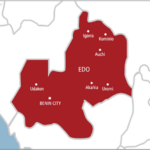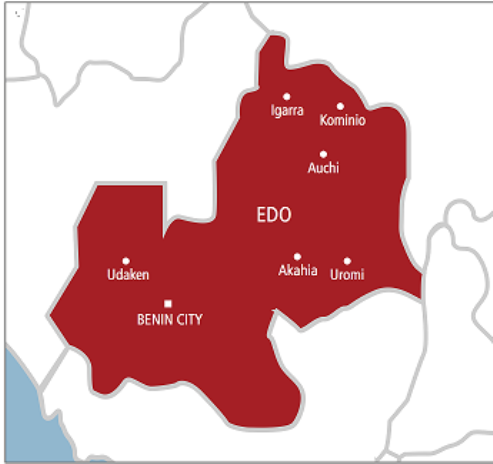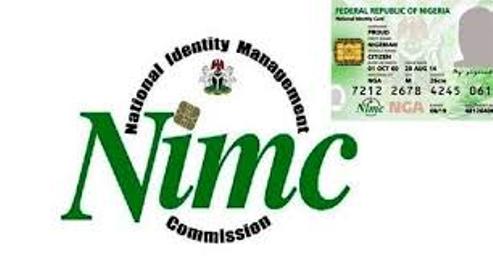
New figures obtained exclusively from the Nigeria Drugs Law Enforcement Agency (NDLEA) shows that hundreds of Nigerians are on death row while others are serving various jail terms in several countries abroad.
According to the figures, 73 Nigerians are presently on death row in Malaysia.
An NDLEA source who spoke on condition of anonymity has revealed. According to the source all the death row inmates were convicted on drug trafficking related offences except one who was sentenced to death for killing his girlfriend.
NDLEA also said the figure was for 2018, adding that the number would be higher by the time 2019 figures were released.
In São Paulo, Brazil, 144 Nigerians are serving various prison terms for drug related offences. All the convicts, the NDLEA said, were from Nnewi, Anambra State.
In Thailand, 650 Nigerians are also serving various terms following their conviction for drug related and other offences.
This is coming on the heels of an unprecedented 252-count federal grand jury indictment unsealed last Thursday charging 77 Nigerian nationals with participating in a massive conspiracy to steal millions of dollars through a variety of fraud schemes and launder the funds through a Los Angeles-based money laundering network as uncovered by the United States’ Federal Bureau of Investigation (FBI).
Two defendants were already in US federal custody on other charges, and one was arrested earlier this week.
The remaining defendants are believed to be abroad, with most of them located in Nigeria.
The indictment alleges that the defendants and others used various online fraud schemes – including business email compromise (BEC) frauds, romance scams, and schemes targeting the elderly – to defraud victims out of millions of dollars.
The Economic and Financial Crimes Commission yesterday said it was working very hard to apprehend some of the indicted persons believed to be in Nigeria.
Also yesterday, information from Saudi Arabia confirmed that 23 Nigerians remained on death row for drug-related offences.
They were convicted for contravening the narcotic and psychotropic substances that are punishable by death.
They were arrested between 2016 and 2017 at King Abdul-Aziz International Airport, Jeddah and Prince Muhammad bin Abdu-Aziz International Airport, Madinah having concealed the banned substances in their rectums, the Saudi document revealed.
Government sources said countries where drug trafficking is prevalent have been having discussion with the government of Nigeria seeking ways to stop traffickers from coming to their countries.
Countries like Malaysia, Thailand, Brazil and countries in that axis already have memorandum of understanding with Nigeria on how to curtail the influx of Nigerians to these countries. These MoU require Nigeria government to give clearance to its citizens before they apply for visa to Malaysia, Thailand and other countries where drugs production is prevalent.
Apparently worried by massive influx into Malaysia, the Malaysian authorities sent a diplomatic note the Nigerian Foreign Affairs Ministry
The note, urged the federal government to prevail on it citizens not to come to Malaysia for jobs because there were no jobs in the country. That diplomatic note was sent further by the Foreign Ministry NDLEA for action
As part of measure to stop the influx of Nigerians to Malaysia, anyone seeking to travel to the country would have to clear with the NDLEA.
“Nigerians go there on the pretext of looking for job, only to start trading in drugs when they get there,” the source added.
Investigation by THISDAY shows that when Nigerians get to Malaysia they started selling drugs on social media.
They sometimes open WhatsApp group using special codes to sell drugs to Malaysia citizens.
In South Africa, thousands of Nigerians are also serving various jail terms for drug trafficking and other offences.
THISDAY check shows that in South Africa, non-indigenes cannot open bank accounts. Only South African citizens are allowed by law to open bank accounts. The only exception for non-indigenes to be eligible to open an account is by marriage to South African citizens.
“It is this loophole Nigerians working in collaboration with fraudulent South African officials have been able to circumvent.
“Some Nigerians reportedly paid ten thousand dollars to officials of South African interior ministry to have access to a list of any yet to marry South African lady. Immediately they get access to the names single ladies, marriage certificates are forged purporting to show that a South African lady had been married to a Nigerian. This is then entered into the marriage registry which then qualifies him to be able to open a bank account. Only for the innocent South African lady to discover when she is about to marry that she was already married someone she doesn’t even know in the records. Based on that she is disallowed from recording her real marriage until she divorces herself from the fake marriage she never even knew about.”
A United States government’s report released in March this year said Nigerian traffickers were leading globally.
In the comprehensive report made available to the media, the rate at which the illicit drugs were trafficked from the country had become worrisome to the international community.
The report also noted that Nigerian drug traffickers remained the preeminent international drug trafficking threat based in Africa.
It said: “Nigerian trafficking networks operate in the United States as well as throughout Africa, South America, Europe, and Asia.
“Nigerian drug traffickers have strengthened partnerships with international cocaine and heroin distribution networks to procure and distribute significant quantities of drugs in the United States and other lucrative markets.
“Nigeria is also experiencing an opioid epidemic. The most widely used opioid in Nigeria is tramadol, a pharmaceutical product originating mostly from India. Both legitimate Indian pharmaceutical companies and illicit clandestine labs mass-produce and ship tramadol and counterfeit tramadol tablets in 200, 225, and 250-milligram dosages for the Nigerian market.” (THISDAY)
Drugs: Seven Three Nigerians Awaiting Execution In Malaysia










